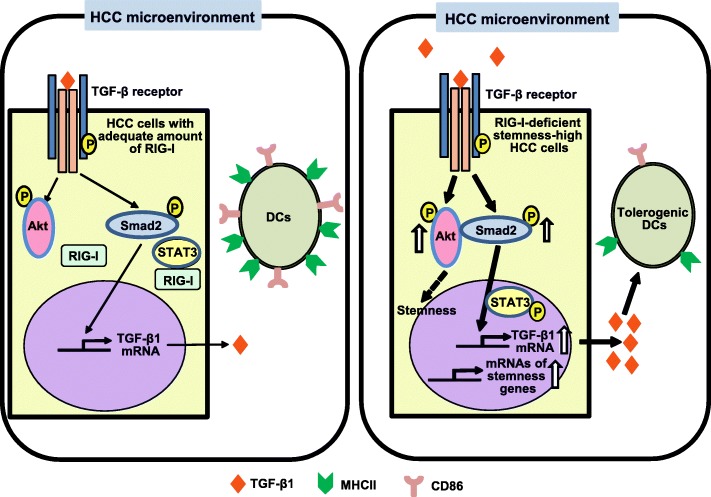Fig. 7.
Graphical abstract of the main findings of this study and of related existing data. Main findings of this study: upregulated expression of stemness-related genes and TGF-β1 genes in RIG-I-deficient HCC cells, suppression of the generation of DCs and induction of an immunosuppressive DC phenotype with low levels of MHCII possibly by TGF-β1 secreted into the RIG-I-deficient HCC microenvironment, enhancement by RIG-I deficiency of TGF-β1-induced phosphorylation of the key TGF-β1 signaling components Smad2 and Akt in HCC cells, suggesting its involvement in autoinduction-mediated amplification of TGF-β1 mRNA expression and secretion, Akt dependence of the augmented TGF-β1-induced phosphorylation of Smad2, and induction by RIG-I deficiency of Smad2/p-Smad2 and Akt/p-Akt association in HCC cells. Our study suggests that CSCs are involved in DC-mediated immune tolerance. Related existing data: physical association of RIG-I with STAT3 to reduce the level of p-STAT3 [31], TGF-β-induced phosphorylation of STAT3 [35], involvement of STAT3 in TGF-β1 gene expression [34], and possible critical role of Akt in the induction and maintenance of CSCs or cancer stem-like cells [41–43]

